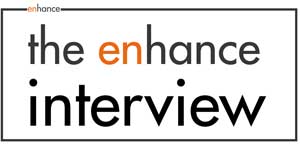 We speak to Hannah Leyro Diaz, Director of Finance & Operations who joined Youth Business International (YBI) in 2017. Since qualifying as an ACA with Deloitte, Hannah has spent her career in the charity sector working at Amnesty International and Prostate Cancer UK prior to YBI. This is Hannah’s first Finance Director role.
We speak to Hannah Leyro Diaz, Director of Finance & Operations who joined Youth Business International (YBI) in 2017. Since qualifying as an ACA with Deloitte, Hannah has spent her career in the charity sector working at Amnesty International and Prostate Cancer UK prior to YBI. This is Hannah’s first Finance Director role.
Youth Business International supports young entrepreneurs to start, grow & sustain their businesses. With offices in London & Colombia, and corporate partnerships with the likes of Accenture and Citi Foundation, YBI supports entrepreneurs around the world.
What was the most challenging part of progressing into the top finance role at YBI?
Looking back, there were a number of “live” issues that I had to jump straight into. Aside from day-to-day understanding of operations, I quickly had to get to grips with 3-4 key challenges and prioritise them.
The most challenging part was definitely trying to prioritise the really key requirements for my first 90 days in the role, at the same time as getting up to speed with operations. Non-finance areas that I am responsible for necessarily took a back seat, which didn’t feel comfortable.
Can you take us through any of the challenges you have faced in your career and the steps you took to overcome these challenges?
When I finished my ACA I realised that the work I was doing wasn’t fulfilling me, and I wasn’t enjoying what I was doing at all. The biggest challenge was what to do about it, or whether to hold out for motivation to take hold again. It was at that point that I decided to move into the charity sector, but the experience I had in tax didn’t count for much in a management accounting role. I started in a junior position and learnt a whole new set of finance skills. Looking at it now, I was taking a risk by starting again, but I’ve never looked back and am so pleased I challenged myself to take a different path.
What the most challenging period for your career journey and why?
This current role. At the same time as getting to grips with the finances of a new organisation, I’ve taken on responsibility for IT, HR and am also Data Protection Officer. I’ve had to maintain a balance between dealing with the most pressing issues and understanding that the day to day cannot just “fall over”, even when there is a gap in the team. It has sometimes been a lonely place; you can’t please everyone with the decisions you take, but thankfully mine have come to be respected.
What has been the most exciting thing you have worked on and why?
I felt very motivated by implementing the new finance system and seeing the first set of management accounts being produced. I have never done a “from scratch” implementation before and I learnt a lot, and it was good to be leading on a project that has had such a transformative impact on the charity. I’m really pleased it’s moved so far so quickly.
We also co-created a large, multi-year grant with one of our partners, which was exciting as we got to challenge ourselves and each other over how best we achieve impact, which can be challenging for any not for profit as your measures of success are less concrete and can be a lot more varied.
What is your favourite bit of the work day / week and why?
I really appreciate Monday mornings as I try very hard to totally switch off at the weekends and often forget everything I knew the previous Friday! I try to get in early, spend a couple of hours making sure my inbox is manageable and focussing on prioritising my week. I’ve had to be quite reactive in this role, so my Monday morning recalibration has been quite important to me and helps ground me and prepare for the week.
At YBI we have a monthly pot-luck lunch, where two teams take it in turns to cook. This is a lovely sociable lunch in the office, and given how busy we often are, it’s a good chance to catch up with people without having to talk shop.
How important to you is your professional development – of skills rather than just technical knowledge?
Why does development help you so much?
I’d argue that skills development is more important than technical knowledge, as long as one has the capacity to learn that technical knowledge and, obviously, is not incompetent! Human skills are what differentiates great leaders from everyone else, and one can be a super strong technical accountant without the ability to transmit the right messages and engage in the right level of debate, if you haven’t had a change to reflect and broaden your skills from beyond the number crunching. Finance is a support function as well as a leadership function, and therefore you need a balance of technical and personal skills to live up to the challenge.
What advice would you give aspiring finance staff? What advice would you give your younger self?
Always seek to learn the bigger picture and where your work fits in. You’ll be surprised just how far your work reaches throughout an organisation, even for some of the smallest tasks.
Always challenge your own assumptions, and make sure that you are a critical friend to non-finance stakeholders. Definitely get as much business partnering experience as you can.
I’d tell my younger self to breathe a bit more deeply, and possibly “stand still” a little bit more, giving a moment of thought before action, even when things can be frustrating.
Make sure you network and if possible contribute to different networks – you get what you put in, and having external voices can be invaluable especially if, like me, it’s the first time you’re dealing with particular challenges.
If you could pick out one skill that has contributed the most to your success, which one would it be? Why has this skill helped you so much?
Horizon scanning. In this role, I can get caught up in the day to day, especially during a gap in the team or during an audit. Always put your head above the day to day and check in on longer term plans. Sometimes these help you find the answers you need to day-to-day job, and, of course, it’s essential to ensure financial sustainability. If I hadn’t done a mix of detail and horizon scanning, I would have made my job very difficult indeed, and probably wouldn’t have performed so well.
How do you think the role of FD is changing, from 5 and 10 years ago vs today?
Surely it’s getting broader – FDs now need to be more versed in areas of operations outside of finance. I see a lot more emphasis on digital knowledge and skills across all areas of the workforce, and FDs need to be open to digital disruption, but not so much that they put their organisations at risk, or change everything overnight. I see FDs now as being trusted business advisors more than technical accountants, but it’s important not to lose sight of our professional training.
What is your top tip to finance staff who have teams to manage?
Give colleagues the space and the trust (where appropriate) to make their own suggestions on improvement, and definitely have them write their own objectives. Don’t be afraid of stepping in to help if you spot a risk.
Never be shy of proper performance management. Whilst it can feel tough at times if its poor performance you are managing, it’s the fairest way to improve performance as a team.

Enhance provides coaching and mentoring for ambitious Directors.
Call us on 0203 500 6300 or contact us here to find out how we can help you.
the enhance interview series
